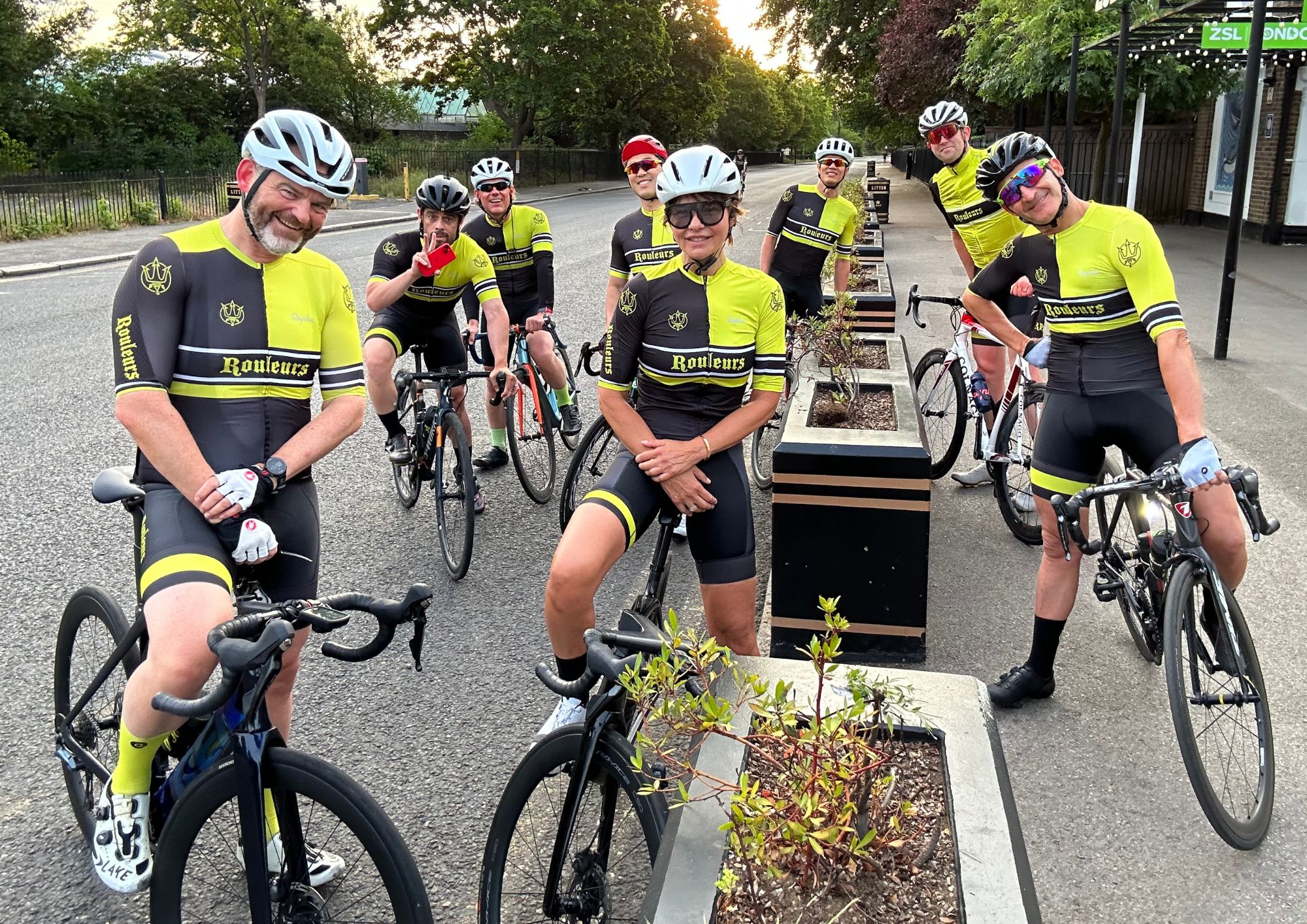Cyclists warn of rise in violent bike thefts
Groups using Outer Circle at Regent's Park fear people will be put off cycling
Monday, 23rd October 2023 — By Anna Lamche

Several members of the Regent’s Park Rouleurs cycling club have been targeted by bike thieves in recent months
CYCLISTS are being targeted by thieves while riding their bikes, amid warnings the “increasingly violent” attacks could discourage “grassroots” cycling from taking hold in the capital.
The Regent’s Park Rouleurs (RPR) are one of 37 cycling clubs to train on the outer circle of the park. In recent months, members of the group have been targeted by bike thieves on their way to and from training.
RPR founder Damien Lui said: “What’s concerning is what’s happened in the last year. The first time our club got targeted was in July. A member of ours was riding back home after a training ride at 7am. He was [in Westminster] and he got his tyres taken out, and he woke up in hospital. He didn’t know what happened.”
He said the thieves either used a “proper stinger – those things police use to puncture car tyres – or barbed wire” in their attack, adding: “They were trying to yank the bike off him, but some bus drivers and cabbies were honking their horns, so they got scared and ran off.”
Two weeks ago, another member was targeted in Archway Road on his way to Regent’s Park.
“A couple of kids on a moped literally pushed him off at 5am. He was on his way to one of our rides,” Mr Lui said.
Youth riders at the club have also been targeted by thieves while on their way to training, Mr Lui said. The most recent attack on RPR members occurred on Saturday in Barnet.
He added: “They were stopped at the lights… within five seconds, their route of escape was cut off by a moped, and they were pinned against the railings… they gave their bikes over and then they called the police. That made us think: ‘Are we actively being targeted?’ I don’t think [we are] as a club, but more as road cyclists with club kit that implies we have something valuable between our legs.”
Mr Lui is part of a wider network of cycling groups across London.
He added of the attacks on road cyclists: “They’re becoming a lot more regular, and they’re becoming increasingly violent… they’re pushing people off… If something’s not done, we can see this escalating to something properly regular and violent.”
He said the Met Police now needs to focus on delivering a “coordinated response” across borough boundaries.
The attacks have worsened in the past year, Mr Lui said, adding: “I think it’s a few things, [like] the cost of living. The economic model of the criminals is getting impacted. I think we’re getting those criminals that would take someone’s watch and hit someone from behind – I think it’s those elements that have now realised: ‘Now I can take a bike, there’s no traceability.’ It’s not like a phone that can be electronically traced. Bikes can be easily hidden… when you’ve got an item that’s as expensive as some cars, ridden by someone who’s scrawny or skinny or old or a female – we make for an easy target.
“The outcome of this is a lot of our more vulnerable riders – women, our younger riders – are not riding as much, or are quite fearful when they’re riding to and from now. I’ve got a car, so I’ve taken to driving, and I’m a pretty big bloke. If I get hit from behind, you don’t know what will happen, right?”
He said of the bike thefts: “If it becomes so entrenched that they can make decent money from this, it will just get out of control. And then forget the Mayor’s cycling agenda. If you lose grassroots cycling, you lose cycling.”
A spokesperson for the Met Police said: “We understand that theft of personal property, such as having a bike stolen, is upsetting and very frustrating for victims. “The number of calls for assistance from the police and reports of crime received each day is such that it is not possible to physically send officers, or to carry out a lengthy investigation, in every case.
“Reports of some types of crime, including bike thefts, are assessed at the point of reporting to determine what realistic lines of enquiry would be available to an investigating officer.
“The assessment considers whether there are any witnesses, whether any CCTV exists, whether there could be forensic evidence and whether any other information such as tracking equipment is fitted in order for an officer to be assigned to investigate.
“Local neighbourhood policing teams do review information and intelligence regularly to identify trends in order to make arrests, recover property and proactively deter thieves.”

